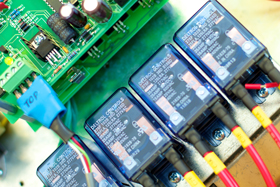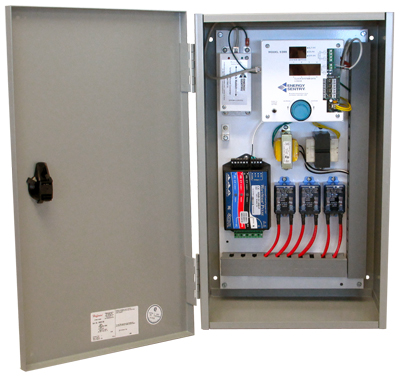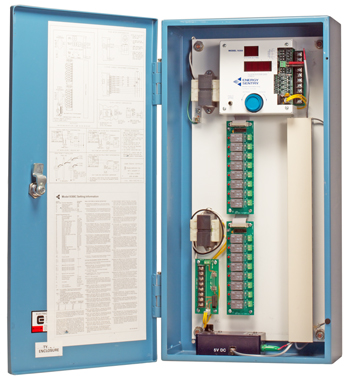Commercial Demand Controllers
Energy Sentry Commercial Demand Controllers manage your non-essential electric loads to reduce peak demand and improve energy efficiency. The Results? Reduced electric costs leading to lower overhead expenses and increased revenues, freeing up capital to be used elsewhere within the company.
How it Works
The Energy Sentry contains advanced software that calculates the rate at which electric use is approaching the demand limit, and sheds electric loads accordingly to prevent going over the set limit. The controlled loads are those which can be deferred for a brief period with little or no effect on comfort, convenience, or interruption of a process. You decide which loads to control and set the desired demand limit with assistance from a qualified professional. The least important loads are the first to be shed and the last to be restored, and the higher priority loads are the last to be shed and the first to be restored. With the proper combination of load control and demand limit, you won’t even notice the Energy Sentry is there, but you’re sure to notice the savings on your electric bill.
Applications
Energy Sentry Systems have been used in a wide range of commercial and industrial applications. Below is a list of some more common types of industries that have benefited from using an Energy Sentry Demand Controller:
| All Electric Buildings | Quick-Serve Restaurants |
| Convenience Stores | Churches |
| Modular School Buildings | Restaurants |
| Professional Offices | Health Clubs |
| Hotels & Motels | Small-Large Industrial |
| Foundries | Heat Treatment Plants |
| Manufacturing Plants | Warehouses |
| Grocery Stores | Feed Mills |
|
|
Saving Statistics
On average, the Energy Sentry saves 10-40% on electric bills per year. For smaller commercial customers this can be around $X,000 and for larger commercial and industrial customers this can be as much as $XX,000. Savings depend heavily on each building’s unique situation given the amount and type of controllable loads, the current load factor percentage, and the utility’s demand rates. Most Energy Sentry systems pay for themselves within 1-3 years.
Click Here to see what some of our commercial customers are saving…



